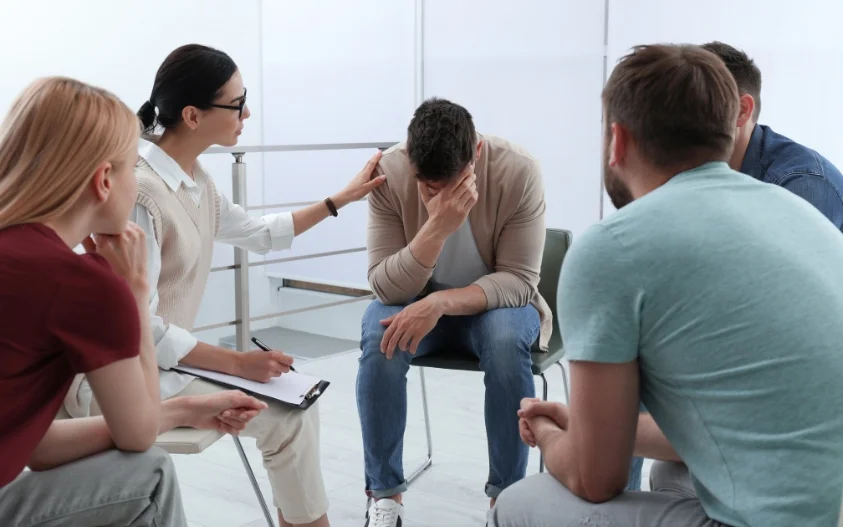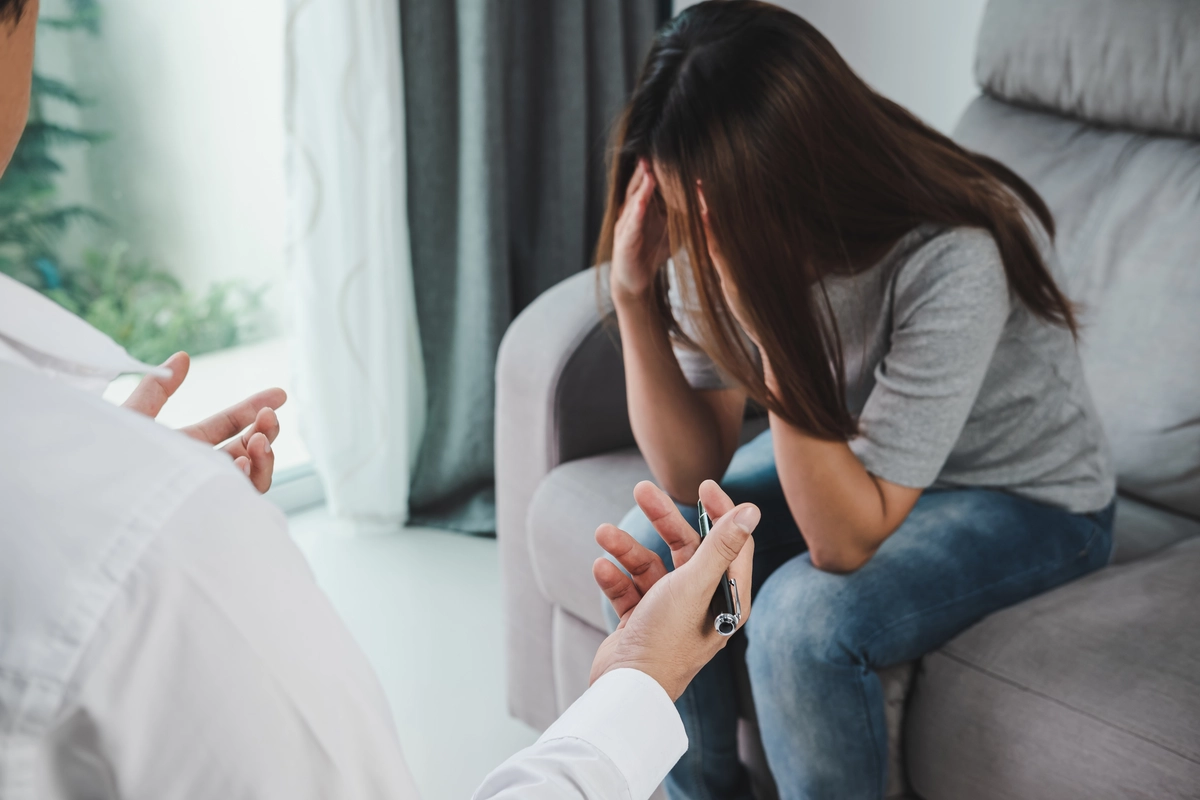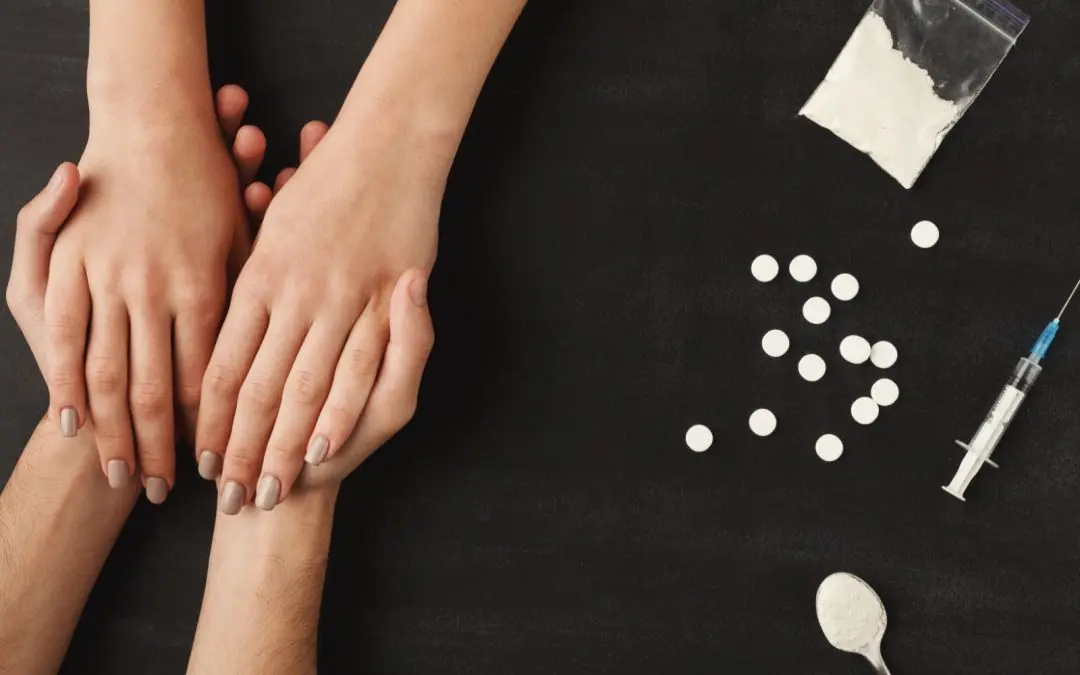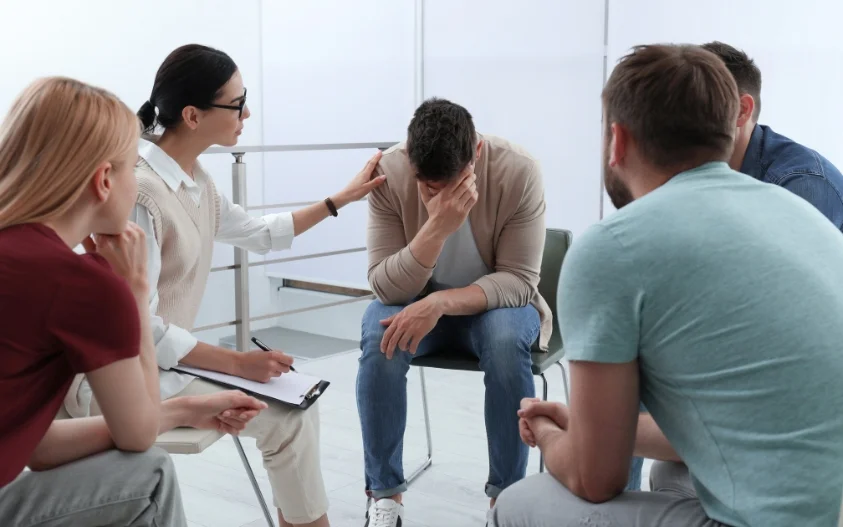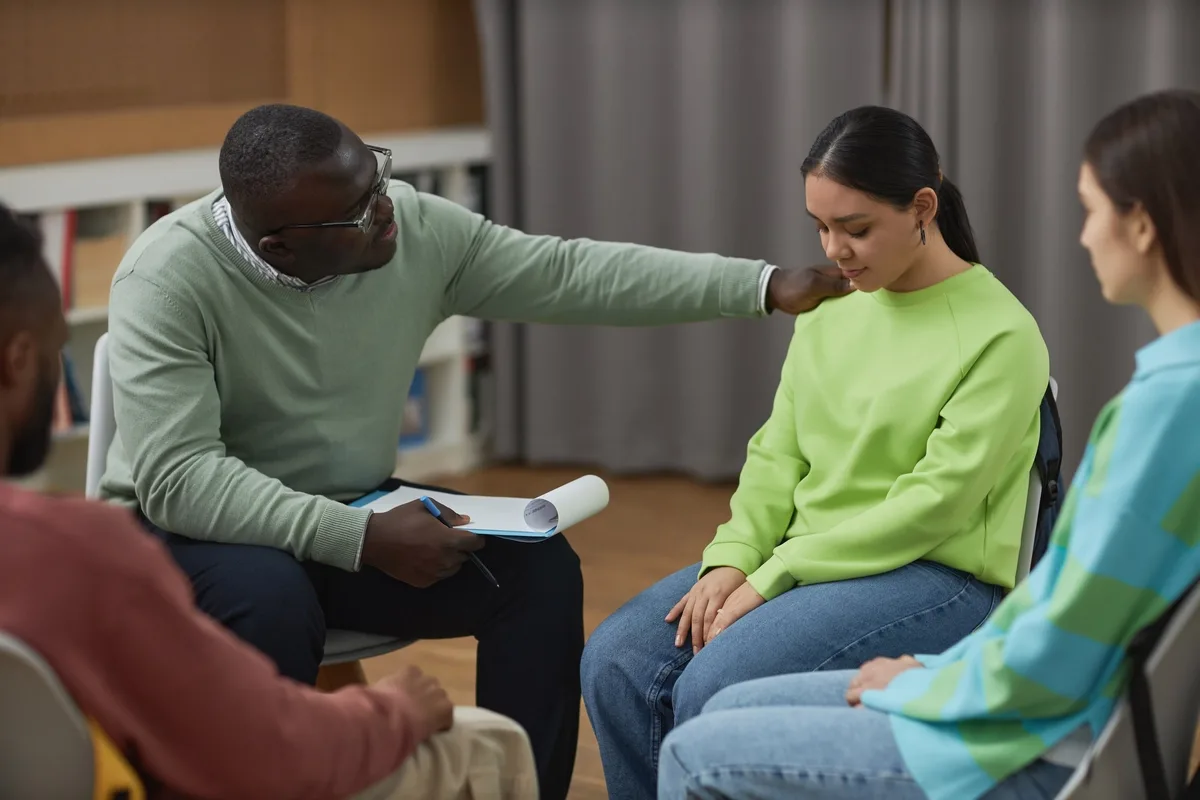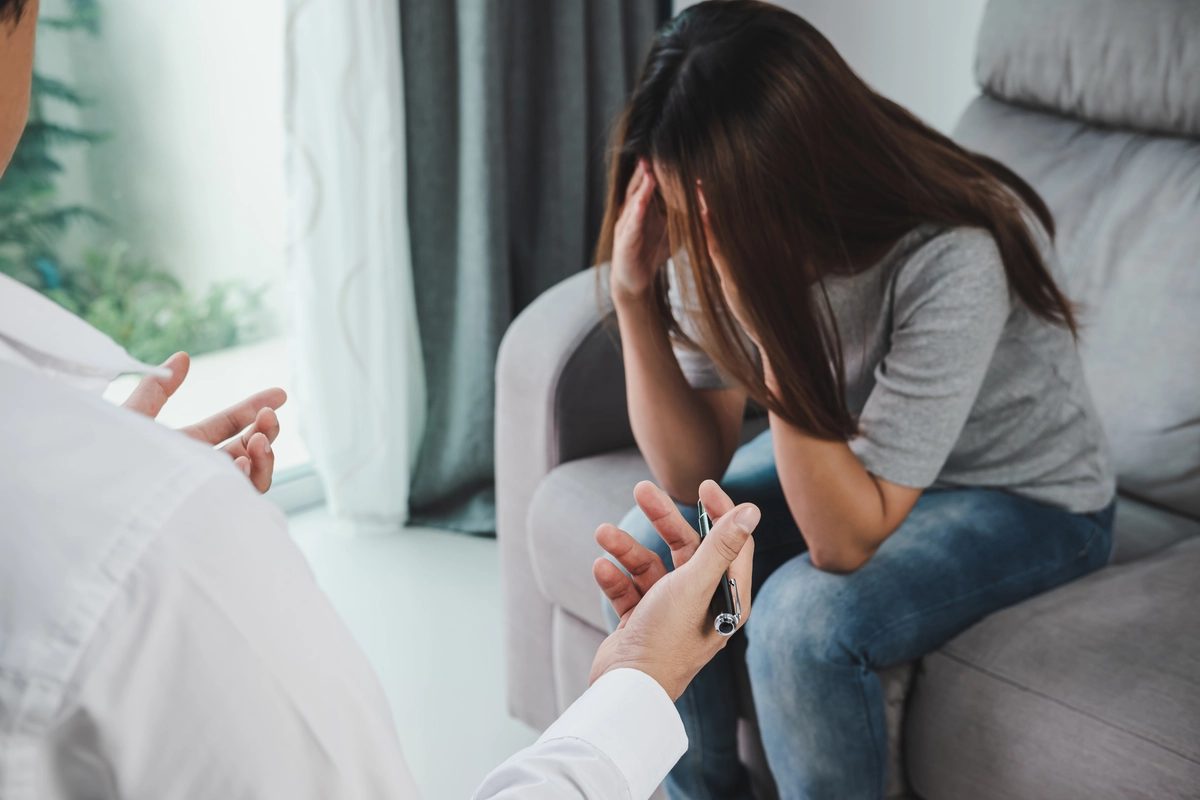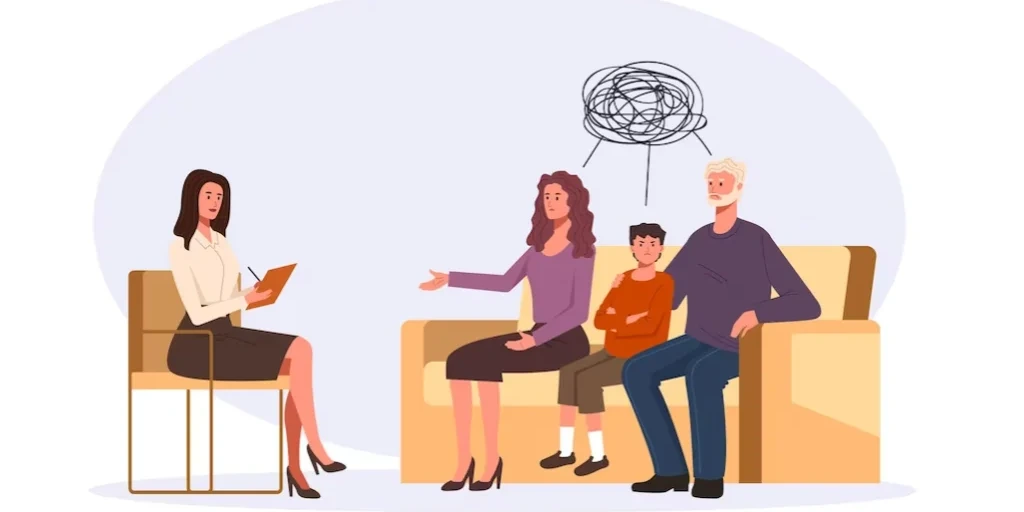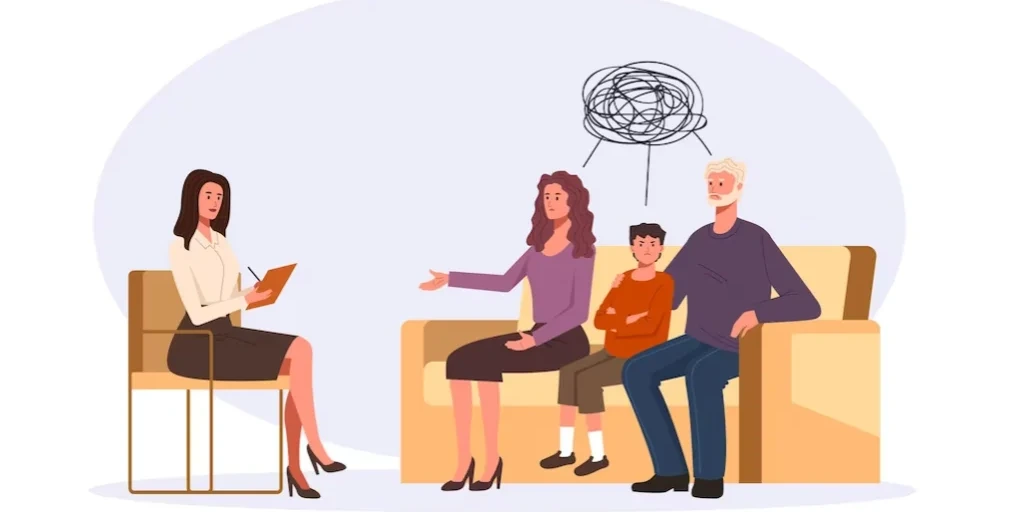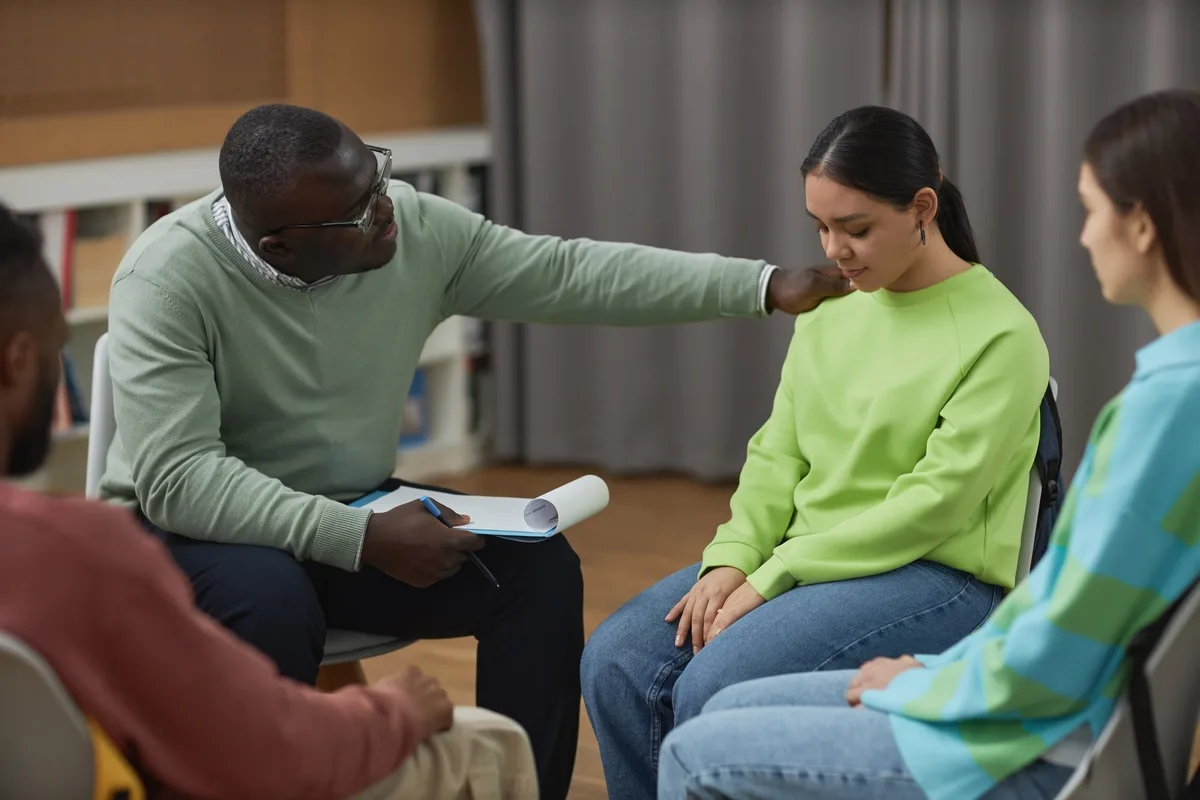24/7 Helpline:
(866) 899-221924/7 Helpline:
(866) 899-2219
Learn more about Dual Diagnosis Rehab centers in Broward County
Dual Diagnosis Rehab in Other Counties

Other Insurance Options

Ceridian

GEHA

ComPsych

Premera

Medical Mutual of Ohio

Molina Healthcare

Magellan

Covered California

BHS | Behavioral Health Systems

American Behavioral

Excellus

Humana

Evernorth

Private insurance

Absolute Total Care

Choice Care Network

Ambetter
Beacon

Sutter

Carleon

Agape Treatment Center
Agape Treatment Center in Fort Lauderdale, FL is a co-occurring mental health and substance use diso...

Faith Farm Ministries
Faith Farm Ministries, located in Fort Lauderdale, Florida, is an alcohol and drug rehab center focu...

Evolutions Treatment Center
Evolutions Treatment Center is an alcohol and drug addiction treatment center located in Fort Lauder...

Recovery Unplugged
Recovery Unplugged is an accredited substance use treatment rehab in Fort Lauderdale, FL that combin...

Boca Recovery Center Detox
Boca Recovery Center Detox is a private rehab located in Pompano Beach, Florida. Boca Recovery Cente...

Destination Hope
Destination Hope provides quality behavioral health treatment by using the most innovative and creat...

Chrysalis Health – Broward Boulevard
Chrysalis Health – Broward Boulevard is a private rehab located in Fort Lauderdale, Florida. Chrysal...

Lamb of God Recovery
Lamb of God Recovery is a private rehab located in Pompano Beach, Florida. Lamb of God Recovery spec...

Henderson Behavioral Health – The Summit
Located in Pompano Beach, Florida, Henderson Behavioral Health – The Summit provides mental health t...

Spectrum Programs Overlay – Outpatient
Broward Outreach Center is a non-profit rehab located in Pompano Beach, FL. Broward Outreach Center ...

FMC Campus – Behavioral Health
FMC Campus – Behavioral Health is a private rehab located in Fort Lauderdale, Florida. FMC Campus – ...

CMET – Counseling Mediation Education and Treatment
CMET (Counseling Mediation Education and Treatment) is a private rehab located in Fort Lauderdale, F...

Henderson Behavioral Health – Charlee House
Henderson Behavioral Health - Charlee House offers a safe and nurturing home for boys ages 11 to 17 ...

Inspirations for Youth and Families
Inspirations for Youth and Families, is a nationally recognized, licensed residential treatment cent...

The Florida House Experience
The Florida House Experience is a nationally recognized and CARF accredited all inclusive, gender-sp...

Sovereign Health
Sovereign Health offers comprehensive treatment programs for mental health, addiction and other beha...

Ocean Breeze Recovery
Ocean Breeze Recovery provides inpatient and outpatient services for individuals with substance addi...

Henderson Behavioral Health – Youth Services
Henderson Behavioral Health - Youth Services provides a wide range of accessible, coordinated and in...

Advanced Addiction Treatment Center
Advanced Addiction Treatment Center offers outpatient treatment for individuals with alcohol and/or ...

1st Step Behavioral Health
1st Step Behavioral Health is a CARF accredited dual diagnosis substance abuse drug rehab in Pompano...

Lifeskills South Florida
Lifeskills South Florida offers inpatient and outpatient treatment for individuals dealing with subs...

Henderson Behavioral Health – Central Branch
Henderson Behavioral Health, located in Fort Lauderdale, Florida, offers behavioral health care serv...

Cornerstone Recovery Center
Cornerstone Recovery Center is a drug and alcohol addiction center located in Fort Lauderdale, Flori...

Archways Behavioral Healthcare Center – ATAP House
Archways Behavioral Healthcare Center - ATAP House is a non-profit rehab located in Fort Lauderdale,...

Broward County Sheriffs Office – Drug Treatment
Broward County Sheriffs Office – Drug Treatment is a public rehab located in Fort Lauderdale, Florid...

The Core Centers
The Core Centers is a drug rehab center located in Fort Lauderdale, Florida. The Core Centers emphas...

Gracious Care Recovery Solutions
Gracious Care Recovery Solutions is a faith-based substance abuse treatment facility that offers mul...

Covenant House Florida
Covenant House Florida offers a six-week residential substance abuse treatment program for homeless ...

ARC Broward
ARC Broward is a private rehab located in Fort Lauderdale, Florida. ARC Broward specializes in the t...

Arete Recovery
Arete Recovery provides inpatient services for individuals with substance addiction with co-occurrin...

House of Hope & Stepping Stones
House of Hope & Stepping Stones offers substance abuse and co-occurring mental health treatments to ...

Recovery Institute of South Florida
Recovery Institute of South Florida is a private rehab located in Fort Lauderdale, Florida. Recovery...

BARC – Broward Addiction Recovery Center – Edgar P Mills Multi Purpose Center
Broward Addiction Recovery Center (BARC) - Edgar P. Mills Multi-Purpose Center offers outpatient ser...

Imperial Point Medical Center – Behavioral Health
Fort Lauderdale’s Imperial Point Medical Center – Behavioral Health (also called Broward Health) is ...

Changes Treatment and Recovery
Changes Treatment and Recovery Center is a welcome respite from the burden and pain of addiction tha...

Beachcomber Family Treatment Center
Beachcomber Family Treatment Center - Commercial Blvd is an addiction treatment center that offers r...

New Season – Pompano Treatment Center
New Season - Pompano Treatment Center is a private rehab located in Pompano Beach, FL. New Season - ...

The Bougainvilla House Family Therapy Center
The Bougainvilla House is an outpatient teen drug and alcohol counseling center, located at Fort Lau...

Serenity Oaks Wellness Center
Serenity Oaks Wellness Center created an environment with a comprehensive program that fosters growt...

The Recovery Institute of the South East
The Recovery Institute of the South East offers substance abuse treatment by utilizing an holistic a...

Legacy Healing Center
Legacy Healing Center, in Pompano Beach, Florida, is an integrative drug and alcohol rehab for adult...

Spark of Hope
Spark of Hope is a private rehab located in Pompano Beach, Florida. Spark of Hope specializes in the...

Fellowship Foundation
Fellowship Foundation is a private rehab located in Pompano Beach, Florida. Fellowship Foundation sp...

Legacy Healing Center – Alcohol & Drug Rehab
Legacy Healing Center – Alcohol & Drug Rehab is a private rehab located in Pompano Beach, Florida. L...

Mission Teens – Sonrise Mission
Mission Teens - Sonrise Mission is a non-denominational Christian Discipleship ministry located in F...

New Directions for Young Adults
New Directions for Young Adults is a private rehab located in Deerfield Beach, Florida. New Directio...

Destination Hope – Tequesta St.
Destination Hope – Tequesta St. is a private rehab located in Fort Lauderdale, Florida. Destination ...

WAR Treatment
WAR Treatment is a private rehab located in Hallandale, Florida. WAR Treatment specializes in the tr...

Compass Detox
Compass Detox is a detox and rehab facility located in Pembroke Pines, FL, conveniently located near...

AMIkids
AMIkids is a non-profit organization located in Fort Lauderdale, Florida. AMIkids provides counselin...

Crystal Lake Healing
The Crystal Lake Healing addiction treatment center has breathtaking views and state of the art faci...

Sunrise Detox Ft. Lauderdale
Sunrise Detox Ft. Lauderdale is a public rehab located in Fort Lauderdale, Florida. Sunrise Detox Ft...






















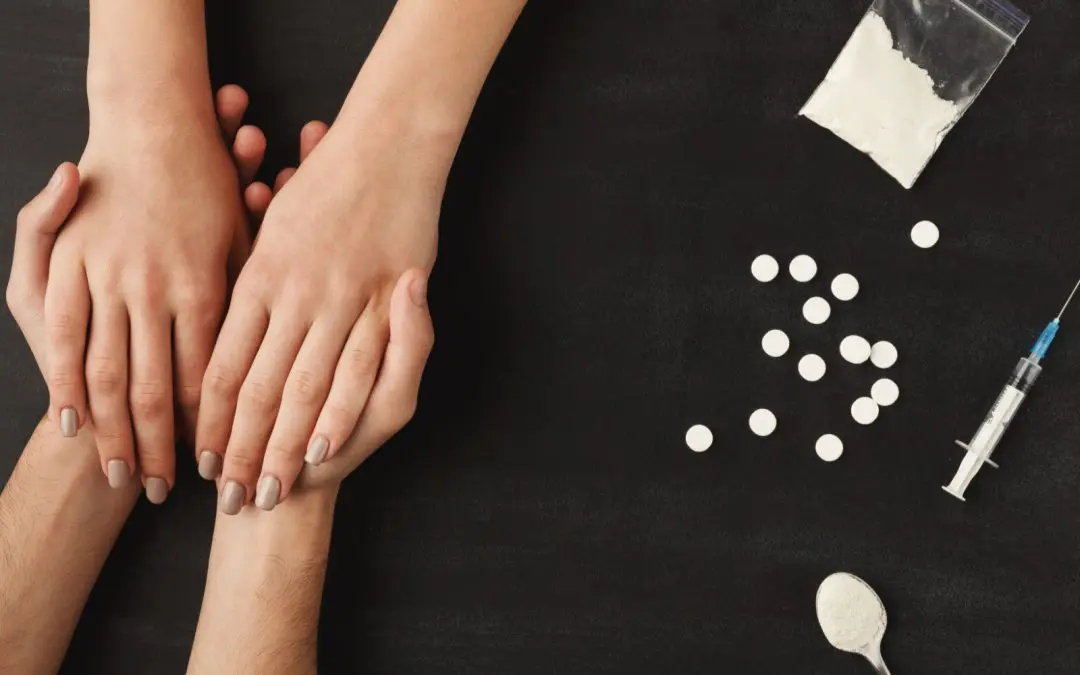







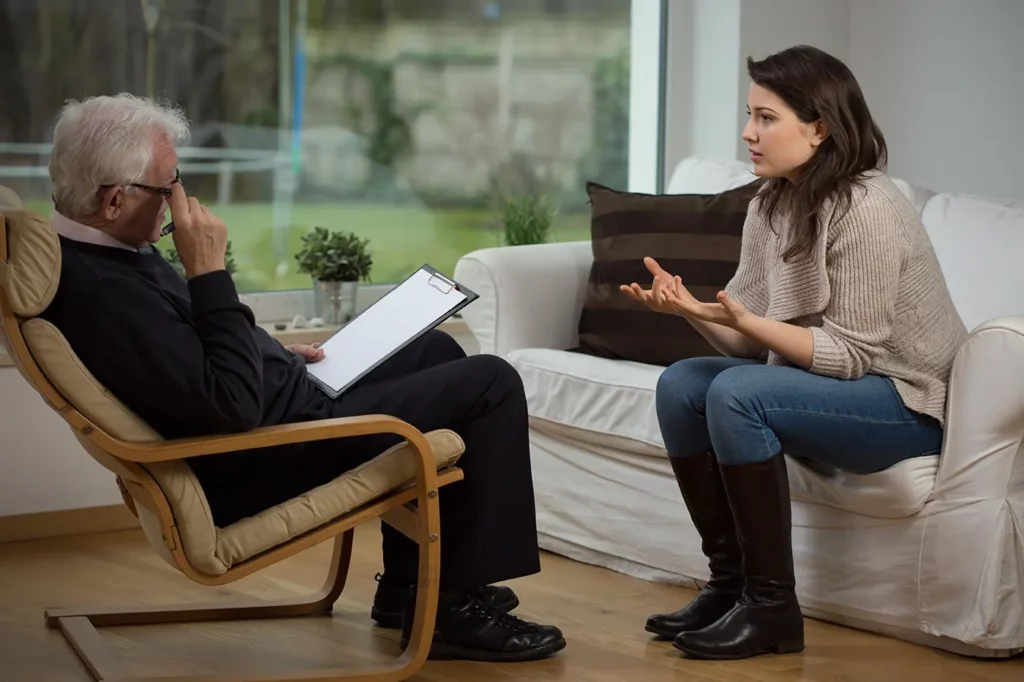

The Community
The Community is a private rehab located in Fort Lauderdale, Florida. The Community specializes in t...

Inspirations for Women
Inspirations for Women is a private rehab located in Pompano Beach, Florida. Inspirations for Women ...

Bayview Counseling and Wellness Center
Bayview Counseling and Wellness Center is a private rehab located in Fort Lauderdale, Florida. Bayvi...

Broward County – South Andrews Avenue
Broward County – South Andrews Avenue is a private rehab located in Fort Lauderdale, Florida. Browar...

Bridge at Rehability Center
Bridge at Rehability Center is a private rehab located in Fort Lauderdale, Florida. Bridge at Rehabi...

Banyan Health Systems
Banyan Health Systems is an alcohol and drug rehab center in Pompano Beach, Florida. They provide al...

Henderson Behavioral Health – Crisis Stabilization Unit
Henderson Behavioral Health - Crisis Stabilization Unit provides short-term, intensive, inpatient tr...

Stony Brook Counseling Center
Stony Brook Counseling Center is a private rehab located in Fort Lauderdale, Florida. Stony Brook Co...

Archways Behavioral Healthcare Center – Avon Manor Group Home
Archways Behavioral Healthcare Center – Avon Manor Group Home is a private rehab located in Fort Lau...

Advocate Counseling Services
Advocate Counseling Services is a private rehab located in Fort Lauderdale, Florida. Advocate Counse...

Fort Lauderdale Addiction Treatment Center
Fort Lauderdale Addiction Treatment Center is a JCAHO accredited and affordable, alcohol and drug ad...

Nova Southeastern University Co occurring Disorders
Nova Southeastern University is a non-profit rehab located in Fort Lauderdale, FL. Nova Southeastern...

Pompano Center
Pompano Center is a private rehab located in Pompano Beach, Florida. Pompano Center specializes in t...

Portner Counseling Group
Portner Counseling Group is a private rehab located in Pompano Beach, Florida. Portner Counseling Gr...

LakeHaven Recovery Center
LakeHaven Recovery Center provides superior care for those individuals who are suffering from substa...

Henderson Behavioral Health – FACT
Henderson Behavioral Health - FACT is an evidence-based program which delivers "services without wal...

Al – Anon Information Service
Al – Anon Information Service is a non-profit rehab located in Fort Lauderdale, Florida. Al – Anon I...

Broward County Addiction Center
Florida, Broward Addiction Recovery Center provides free substance abuse treatment to Broward County...

New Vista Adult
New Vista Adult is a private rehab located in Fort Lauderdale, Florida. New Vista Adult specializes ...

Believe in Me
Believe in Me is a private rehab located in Fort Lauderdale, Florida. Believe in Me specializes in t...

AA – Alcoholics Anonymous
AA – Alcoholics Anonymous is a non-profit rehab located in Fort Lauderdale, Florida. AA – Alcoholics...

Broward Health Medical Center – Behavioral Health
Broward Health Medical Center – Behavioral Health is a public rehab located in Fort Lauderdale, Flor...

New Friendships – Holly Heights Drive
New Friendships is a private rehab located in Fort Lauderdale, FL. New Friendships specializes in th...

Metro Treatment of Florida
Metro Treatment of Florida is a private rehab located in Fort Lauderdale, Florida. Metro Treatment o...

Cove Center for Recovery
Cove Center for Recovery is a private rehab located in Fort Lauderdale, Florida. Cove Center for Rec...

American Family Counseling – West Mcnab Road
American Family Counseling – West Mcnab Road is a private rehab located in Fort Lauderdale, Florida....

Gulf Coast Jewish Community Services
Gulf Coast Jewish Community Services is a private rehab located in Fort Lauderdale, Florida. Gulf Co...

Advanced Addiction Treatment Center – The Phoenix Group
Advanced Addiction Treatment Center – The Phoenix Group is a private rehab located in Pompano Beach,...

Lifeline of Miami
Lifeline of Miami is a private rehab located in Fort Lauderdale, Florida. Lifeline of Miami speciali...

Holistix by the Sea
Holistix by the Sea offers quality, effective treatment to individuals who want to overcome the addi...

BARC – Broward Addiction Recovery Center
Broward Addiction Recovery Center provides addiction treatment and mental health support for adults ...

Addiction Treatment Solutions
Addiction Treatment Solutions is a private rehab located in Pompano Beach, Florida. Addiction Treatm...

7th Avenue Recovery
7th Avenue Recovery is a private rehab located in Fort Lauderdale, Florida. 7th Avenue Recovery spec...

Peaceful Ridge Recovery
Peaceful Ridge Recovery offers treatment for substance abuse issues by providing outpatient detox, i...

Pompano Beginners Sober House
Pompano Beginners Sober House is a private addiction treatment center for adults in Pompano Beach, F...

BRT Counseling
BRT Counseling is a private rehab located in Pompano Beach, Florida. BRT Counseling specializes in t...

Archways Behavioral Healthcare Center – Sunshine Apartments
Archways Behavioral Healthcare Center - Sunshine Apartments, located in Fort Lauderdale, Florida, of...

Advanced Behavioral Care
Advanced Behavioral Care is a private rehab located in Fort Lauderdale, Florida. Advanced Behavioral...

The Treatment Center of the Palm Beaches
The Treatment Center of the Palm Beaches is a private rehab located in Pembroke Pines, Florida. The ...

Alcohol and Addictions
Alcohol and Addictions is a private rehab located in Pompano Beach, Florida. Alcohol and Addictions ...

Compass Health Systems – Oakland Park
Compass Health Systems – Oakland Park is a private rehab located in Fort Lauderdale, Florida. Compas...

Blue Sky Treatment
Blue Sky Treatment is a private rehab located in Lighthouse Point, Florida. Blue Sky Treatment speci...

Connections Addiction Treatment Center
Connections Addiction Treatment Center is located in Fort Lauderdale, Florida. Connections Addiction...

Satori Waters
Satori Waters - Atlantic is a drug and alcohol treatment center that incorporates and combines sever...

Parents Information and Resource Center
Parents Information and Resource Center is a non-profit counseling clinic located in Pompano Beach, ...

Recovery Grove Addictions Program
Recovery Grove Addictions Program is located in Fort Lauderdale, Florida. Recovery Grove Addictions ...

Pathway To Hope
Pathway To Hope offers inpatient services for individuals with substance addiction. The program incl...

Simple Path Recovery
Simple Path Recovery is a drug and alcohol rehabilitation center in South Florida. Their goal is to ...

Blue Sky Treatment
Blue Sky Treatment’s Residence – The Freedom House is a private rehab located in Lighthouse Point, F...

Caring Therapists of Broward
Caring Therapists of Broward is a counseling center providing mental health and substance abuse trea...

New River Wellness Center
New River Wellness Center offers treatment for substance abuse and co-occurring issues in an individ...

Recovery First Treatment Center
Recovery First Treatment Center is a private rehab located in Fort Lauderdale, Florida. Recovery Fir...

Mastermind Care
Mastermind Care is a licensed program designed to help individuals that are struggling with addictio...

Road to Recovery Wellness Center
Road to Recovery Wellness Center is a public rehab located in Fort Lauderdale, Florida. Road to Reco...

Alcohol Detox & Drug Rehabs Florida – The Luminous Care
Florida Drug Rehab – The Luminous Care offers best drug detox and alcohol Detox and a reputated Reha...

WestCare Village South – Pembroke Pines
WestCare Village South – Pembroke Pines is part of an established network of addiction centers that ...

Our Place Recovery
Our Place Recovery is a boutique treatment facility located in Deerfield Beach, Fl. Our Place Recove...

AA – Alcoholics Anonymous – Intergroup
AA – Alcoholics Anonymous – Intergroup is a non-profit rehab located in Fort Lauderdale, Florida. AA...

Heaven Sent House
Heaven Sent House is a private rehab located in Pompano Beach, Florida. Heaven Sent House specialize...

Advanced Addiction Treatment Center
Advanced Addiction Treatment Center - Pines Blvd. offers outpatient treatment for individuals with a...

Broward House – Substance Abuse Treatment
Broward House is a not for profit social services organization with nearly 30 years of providing ser...













